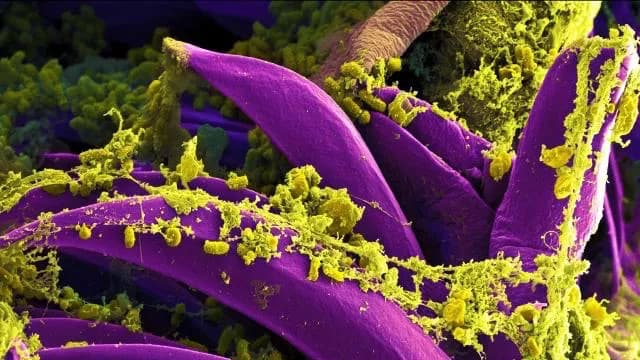
Bubonic Plague Confirmed In Crook Co. Teen After Hunting Trip
The Oregon Health Authority's Public Health Division and the Crook County Public Health Department are confirming a case of bubonic plague in a teenage Crook County girl.
The girl is believed to have acquired the disease from a flea bite during a hunting trip near Heppner in Morrow County that started on Oct. 16. She reportedly fell ill on Oct. 21 and was hospitalized in Bend on Oct. 24. She is recovering in the hospital’s intensive care unit.
Oregon Public Health and the Centers for Disease Control and Prevention epidemiologists are working with health officials in Crook, Deschutes and Morrow counties to investigate the illness. No other persons are believed to have been infected.
Plague is an infectious bacterial disease that is carried by squirrels, chipmunks, and other wild rodents and their fleas. When an infected rodent becomes sick and dies, its fleas can carry the infection to other warm-blooded animals or humans through bites.
"Many people think of the plague as a disease of the past, but it's still very much present in our environment, particularly among wildlife,” said Emilio DeBess, DVM, state public health veterinarian in the Public Health Division’s Acute and Communicable Disease Prevention Section. “Fortunately, plague remains a rare disease, but people need to take appropriate precautions with wildlife and their pets to keep it that way."
DeBess recommends people avoid any contact with wild rodents. They should never feed squirrels, chipmunks or other rodents in picnic or campground areas, and never touch sick or dead rodents. Pets also should be protected from fleas and kept away from wild animals.
Plague is rare in Oregon and is treatable with antibiotics if caught early. Only eight human cases have been diagnosed in the state since 1995, and no deaths have been reported.
Plague symptoms typically develop in one to four days after exposure and include fever, chills, headache, weakness, and a bloody or watery cough. There are three types of plague: bubonic, a lymph node infection; septicemic, a blood infection; and pneumonic, a lung infection. Bubonic plague is the most common form and is characterized by high fever, lethargy and swollen lymph nodes, most commonly in the neck and under the jaw. Infected lymph nodes may spontaneously abscess and drain.
In general, people displaying any flu-like symptoms should stay home from school or work to avoid unnecessarily exposing others to their illnesses. People should contact their health care provider if plague is suspected and a veterinarian if pets or other animals exhibit symptoms consistent with the disease. Untreated plague can be fatal for animals and people. Antibiotics to prevent or treat plague should be used only under the direction of a health care provider.
Julia Burco, DVM, of the Oregon Department of Fish and Wildlife, reminds people who find or observe sick or dead rodents to contact the agency’s veterinarians at 1-866-968-2600.
Health authorities offer the following recommendations to prevent plague:
- Avoid sick or dead rodents, rabbits and squirrels, and their nests and burrows.
- Keep your pets from roaming and hunting.
- Talk to your veterinarian about using an appropriate flea control product on your pets.
- Clean up areas near the house where rodents could live, such as woodpiles, brush piles, junk and abandoned vehicles.
- Sick pets should be examined promptly by a veterinarian.
- See your doctor about any unexplained illness involving a sudden and severe fever.
- Put hay, wood, and compost piles as far as possible from your home.
- Don’t leave your pet’s food and water where mice can get to it.
- Veterinarians and their staff are at higher risk and should take precautions when seeing suspect animal plague cases.
The above post is a redistributed news release provided by the Oregon Health Authority. Note: Materials may be edited for content and length.
Disclaimer: DoveMed is not responsible for the adapted accuracy of news releases posted to DoveMed by contributing universities and institutions.
Related Articles
Test Your Knowledge
Asked by users
Related Centers
Related Specialties
Related Physicians
Related Procedures
Related Resources
Join DoveHubs
and connect with fellow professionals

0 Comments
Please log in to post a comment.